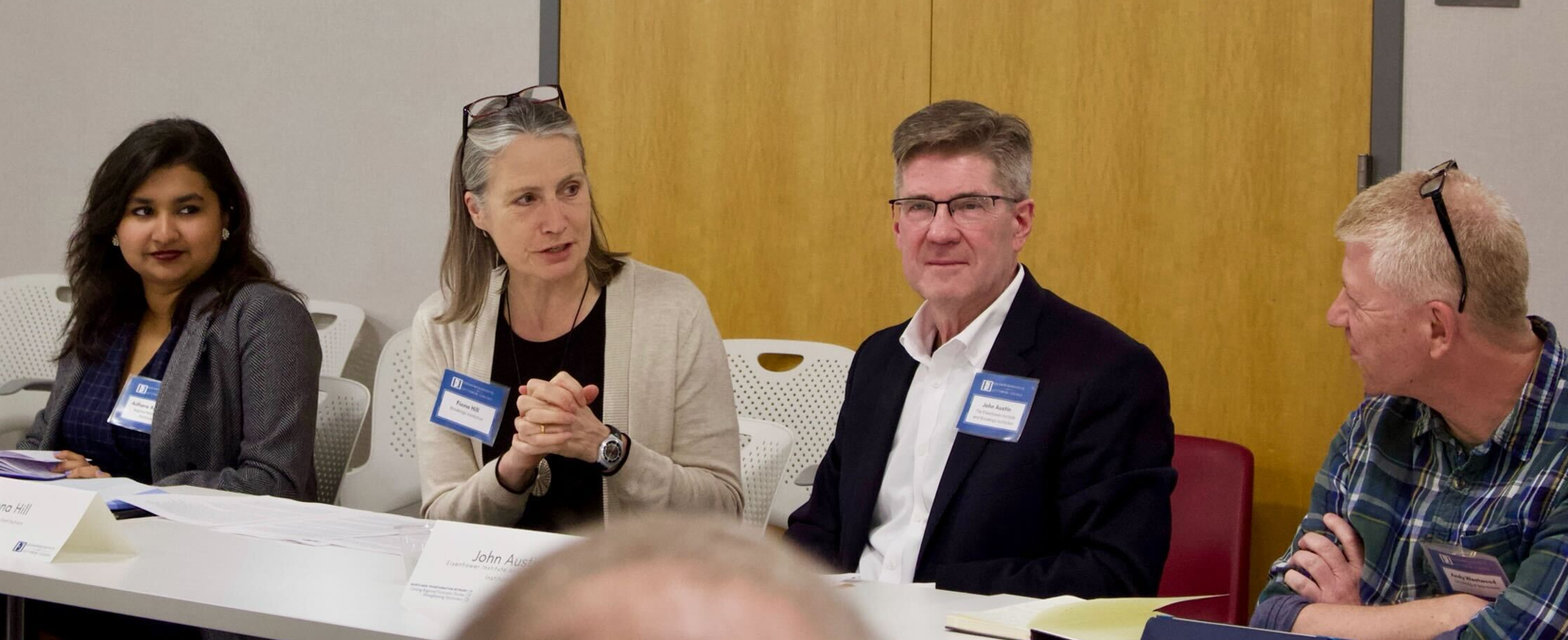Unpack the choices that shape nations--and the lives of their people.
Economic Transformation: Competing Models in a Changing World poses the question: Why do some countries prosper while others face stagnation or economic decline? This semester-long program explores what happens when nations pursue different economic "business models" and the impact of those choices on everyday people.
We are at a pivotal moment: The United States, under the Trump Administration, is attempting a dramatic restructuring of its own economy, as well as its international economic relationships. China, Russia, and other autocracies seek to sustain state-directed models. Historically high-performing European and Asian democracies like Germany and Japan confront aging societies and struggle to develop more innovative, high-tech economies. Meanwhile, countries from Nigeria to Vietnam to Venezuela, pursue a range of economic models, producing varied social, political, and economic outcomes.
This program will examine how national economic policies—spanning trade, tariffs, education, infrastructure, social welfare, and regulation—shape both a country’s economic performance and the well-being of its society.
In this program, participants will explore questions such as:
- What are the tradeoffs between: (a) fostering an egalitarian, inclusive economy versus driving dynamic growth; (b) state intervention versus a laissez-faire approach; and (c) protecting rights and civil liberties versus pursuing stronger state-direction and control?
- How have strategies such as tariffs, trade restrictions, export-led growth, industrial policies prioritizing key sectors, or major subsidies for specific industries and essential goods influenced countries’ economic outcomes?
- How did some countries, like the so-called Asian Tigers, transform from developing economies into leading economic powers within a couple of generations while others struggled to advance?
- Why have some resource-poor nations successfully built thriving high-tech sectors and strong middle classes, while other resource-rich countries struggle with inequality and recurring economic crises?
Join John Austin, Senior Fellow at the Eisenhower Institute and Brookings Institution, and Dr. Raphael L’Hoest, German Deputy Director, Competition and Regional Policy, German Federal Ministry for Economic Affairs and Energy, as they unpack these questions and share insights from the frontlines of global economic strategy.
Interactive Learning Project:
Participants will move beyond discussion to actively engage with real-world challenges. Students will analyze existing economic strategies, debate their effectiveness, assess and develop an economic development plan for a country of their choice. They will balance trade-offs, defend their decisions, and adapt to shifting global realities.
Spring 2026 Schedule:
This program includes three intensive weekends (two in Gettysburg and one overnight in Washington, D.C.), plus a full-day convening in Washington, D.C. and virtual check-ins on Wednesdays in between. Transportation and accommodations are provided for all D.C. visits, and travel time is included in the schedule below.
Introduction/Orientation (Virtual Meeting):
Wednesday, February 4th – 12 PM – 1:30 PM
Tentative Agenda:
- Overview of varied country strategies.
- Review of content and activities of the program.
Intensive 1 (In-Person and Overnight) in Washington, D.C.:
Thursday, February 19th – 7 AM – 6 PM
Friday, February 20th – 9 AM – 6 PM
Saturday, February 21st – 9 AM – 8 PM
Tentative Agenda:
- Review of multiple country strategy case studies.
- Meetings with country/ international organization representatives.
Regroup/Student Research Introduction (Virtual Meeting):
Wednesday, February 25th – 12 PM – 1:30 PM
Tentative Agenda:
- Discussion and review of country strategies.
- Identification of students’ countries of interest.
Intensive 2 (In-Person) in Gettysburg:
Friday, March 6th – 6 PM – 8:30 PM
Saturday, March 7th – 10 AM – 3:00 PM; Work period (3 PM – 5 PM)
Tentative Agenda:
- Review of additional economic/country strategy case studies.
- Meetings with Gettysburg faculty and economic and country strategy experts.
Regroup/Check-in (Virtual Meeting):
Wednesday, March 18th – 12 PM – 1:30 PM
Tentative Agenda:
- Virtual discussions with country representatives on strategy.
- Guidance for student work assessing/improving their chosen country’s economic strategy.
Intensive 3 (In-Person) in Gettysburg:
Friday, March 20th – 6 PM – 8:30 PM
Saturday, March 21st – 10 AM – 3:00 PM; Work period (3 PM – 5 PM)
Tentative Agenda:
- Discussion of emerging issues and themes in country strategy.
- Development of student critiques of their chosen country’s strategy.
Regroup/Check-in (Virtual Meeting):
Wednesday, March 25th – 12 PM – 1:30 PM
Tentative Agenda:
- “Speed-date” presentations of the economic strategy of students’ chosen countries and peer reactions.
Convening with Practitioners/World Trade Organization Simulation (In-Person) in D.C.:
April 9th – 8:00 AM – 7:30 PM
Tentative Agenda:
- Convening and discussion with economic development practitioners and country representatives.
- Interactive presentations of students’ country strategy recommendations.
- Finalizing assignments for the preparation of the final report.
Final Regroup/Completed Report Review (Virtual Meeting):
Wednesday, April 22nd – 12 PM – 1:30 PM
Tentative Agenda:
- Presentation of the final report and discussion.
- Review the process for finalizing and publishing the report.
Attendance at ALL sessions is required.
It is each student's responsibility to ensure that class schedules do not conflict, or to make arrangements with professors to make up work or assessments.
